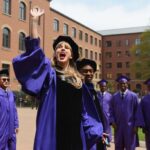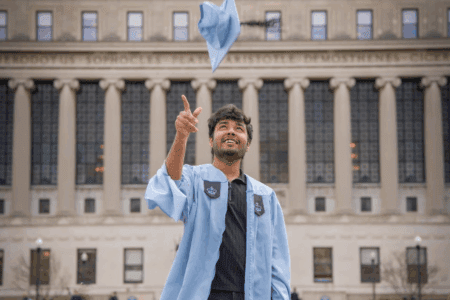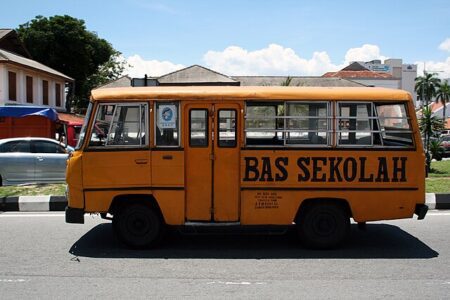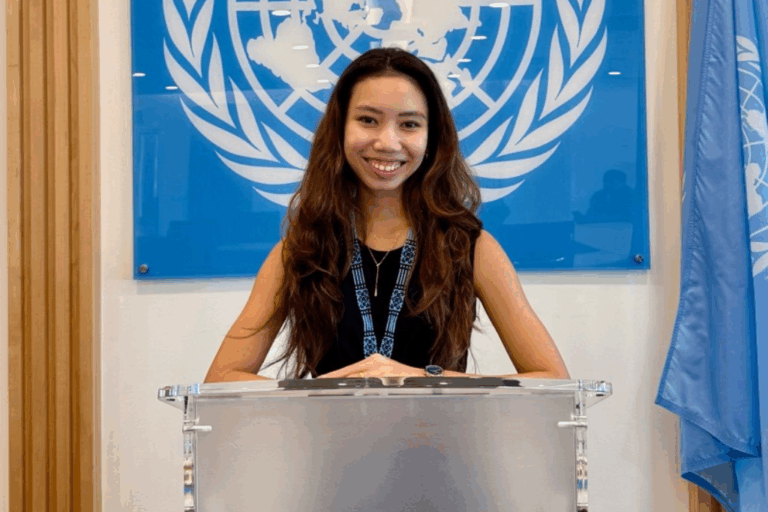
Jasmin Irisha’s love for the environment is rooted in her days as a tot. Growing up with her grandparents, Irisha and her sister would spend every other weekend in nature, playing badminton or having a picnic. This was because her grandfather was a forester, and used to work at the Forest Reserve Institute of Malaysia (FRIM).
Those carefree days nurtured a soft spot and appreciation for the environment. Quite naturally, Irisha found herself getting involved with green initiatives as a teenager.
When she was researching options to further her education in, she stumbled upon environmental science, which she didn’t even know was a degree that existed. Since it was a science degree, her parents, who wanted her to pursue a career in STEM, readily agreed to it.
So, off Irisha went to complete her undergraduate studies in environmental science at the University of Nottingham’s Malaysian campus, kickstarting her journey in the climate sphere.
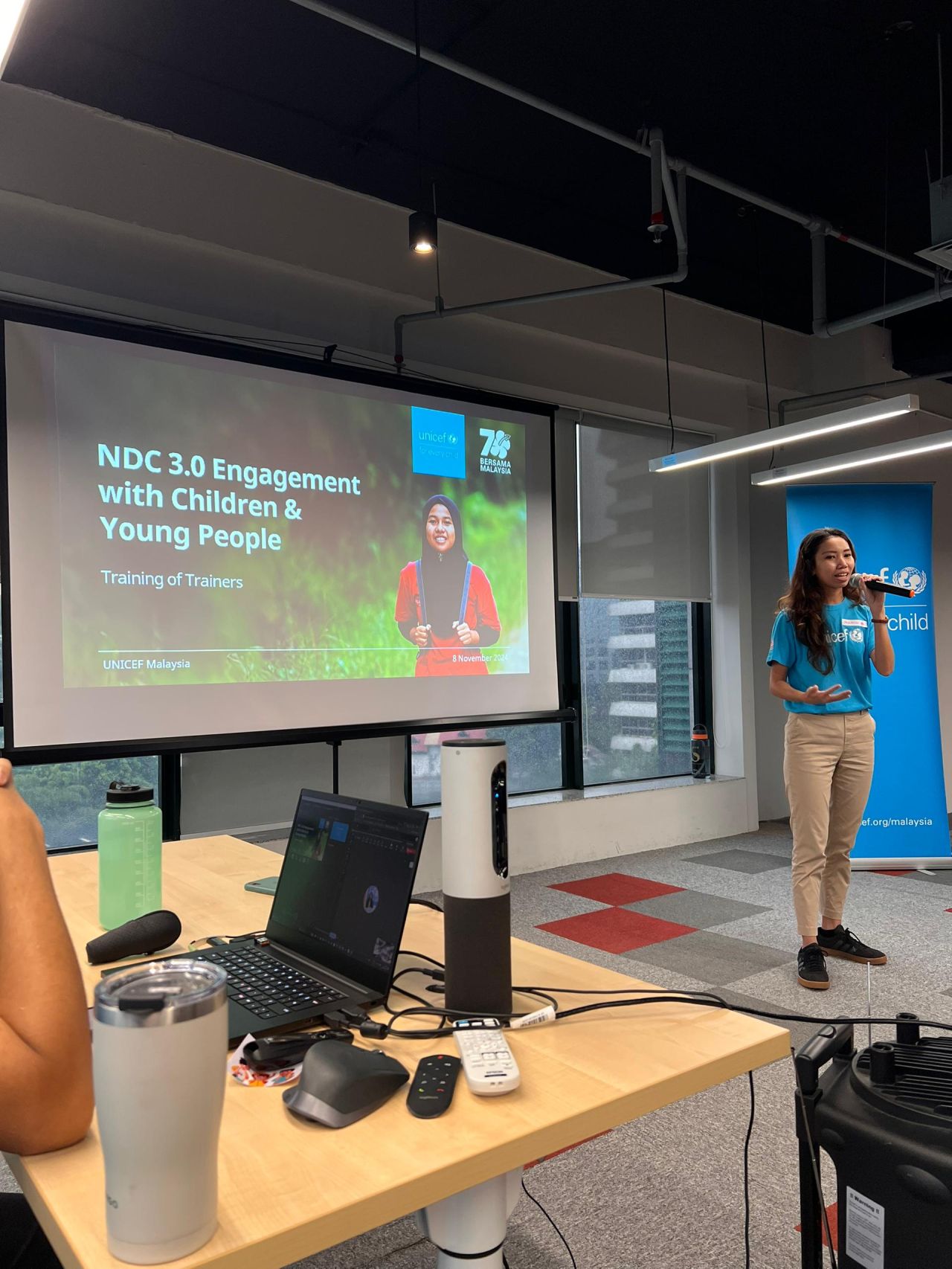
Irisha has grown to become a leading voice in Malaysia’s climate change policy and diplomacy scene. Source: Jasmin Irisha
Beefing up her portfolio first
During Irisha’s undergraduate years, she got involved with the Malaysian Youth Delegation, which introduced her to the world of the United Nations, international conferences, and climate negotiations.
That kind of work appealed to Irisha, and she began looking into a career with the United Nations. She quickly realised, though, that most jobs there had a minimum requirement of a master’s degree.
But Irisha didn’t jump straight into it after completing her bachelor’s. Rather, she wanted to foster her skills and know-how first.
As a start, she worked on a low carbon mobility project to make the city more sustainable through bicycles. It was through a small startup, born out of her university project that she was implementing on campus.
It was inspiring how a small scale uni project got translated into real-life action, thanks to the support of local governments and other stakeholders. So, Irisha kept going. She went on to work with a research institution at Universiti Sains Malaysia in Penang, researching food, agriculture, and nature-based solutions.
She had a stint working in Kazakhstan too, educating the public about renewable energy in an easily understandable way.
It was when Irisha was working as a research associate at the Jeffrey Sachs Centre on Sustainable Development that she began applying for her master’s degree in earnest. At that point, she believed she had beefed up her portfolio enough and developed the necessary skills for research work.
With her background, it might seem like a no brainer for an Ivy League school such as Columbia University to take her in.
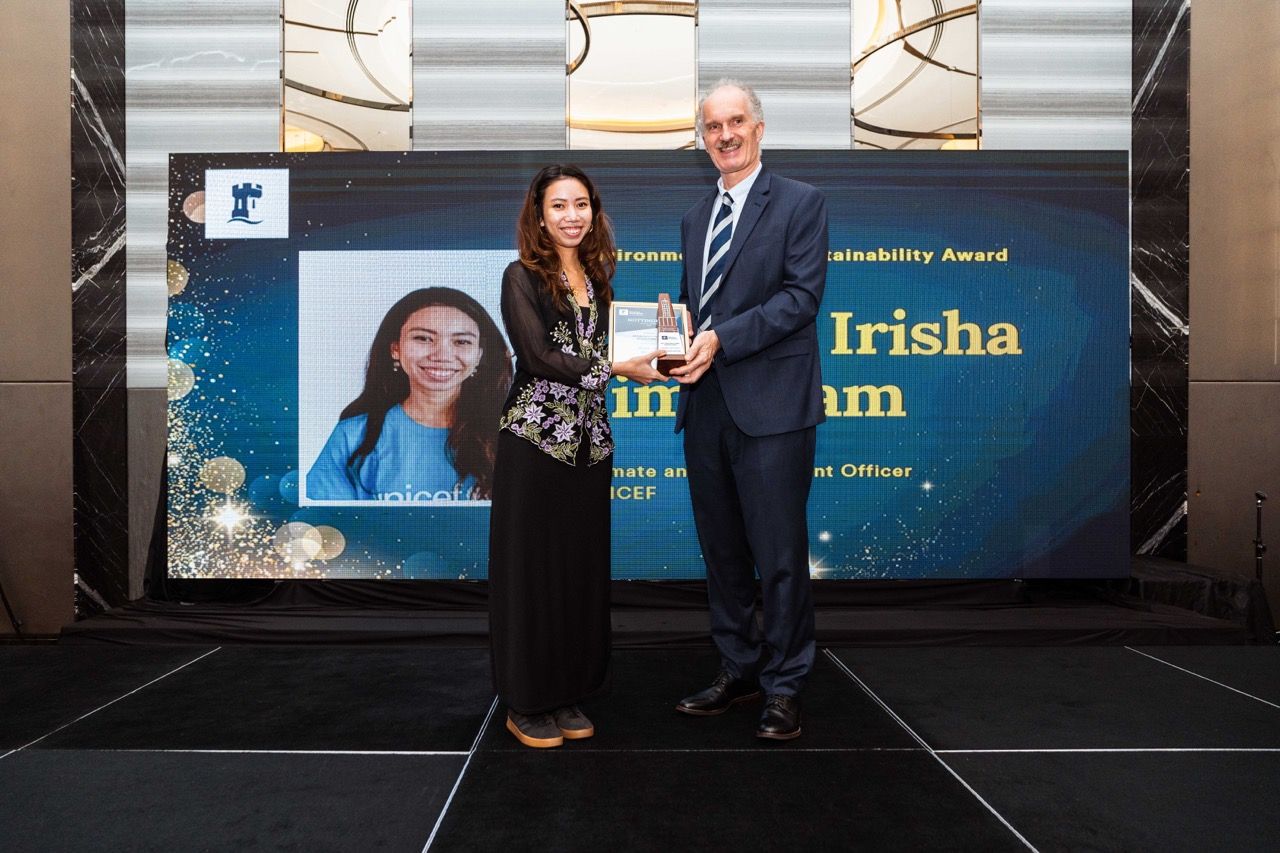
Irisha’s course at the University of Nottingham only had 11 students. Source: Jasmin Irisha
A journey filled with rejections
“What people see is just the university you attended. What they don’t see is the effort you put into the applications,” Irisha says.
Beneath the glamour are months — if not years — of preparation, as well as countless rejections. For years before Irisha secured her offer from Columbia University, she was actually applying for various scholarships to no avail. She was rejected twice from the Chevening Scholarship programme as well as Oxbridge applications.
When it was time to apply for her master’s seriously, she had to confront her weaknesses.
“I knew that I graduated with an undergraduate degree with a second upper from a UK university, and that disqualifies me from the first round of scholarship applications that are just looking for first-class degrees,” she explains.
Despite all her real-world accolades, her opportunities were limited because of her undergraduate degree. Could she get scholarship bodies to see past that?
Irisha decided to try something risky — she applied to top universities before securing scholarships. She managed to get into Columbia University, Kings University College, and University of Melbourne. With these three acceptances, she went back to scholarship bodies to show that all these universities accepted her — as she’s good enough, they should fund her studies.
“It did prove a point, one way or another. But sometimes a lot of scholarship bodies are very black-and-white, compared to US universities where everything is negotiable,” she says.
One way or another, she managed to get some support from a Malaysian programme, as well as a partial scholarship from Columbia.
“For the longest time I felt like I wasn’t smart. I didn’t score straight As in SPM, and I saw all my peers getting full scholarships to do their undergraduate degrees in the UK and US, and I was ‘stuck’ here in Malaysia,” Irisha admits.
SPM, or Sijil Pelajaran Malaysia, is Malaysia’s national examination for secondary school students.
It wasn’t that Irisha wasn’t smart. It was just that the Malaysian education system was very much by the books and examination-based. Public schools are not known for cultivating and measuring intelligence beyond exams. That’s why she took matters into her own hands and paved her own way.
“I think there are ways to go about pursuing what you want,” she says. “I think it’s just in my nature to be a go-getter, to think outside the box. And it helped me a lot in my career in terms of problem fixing and solution finding.”
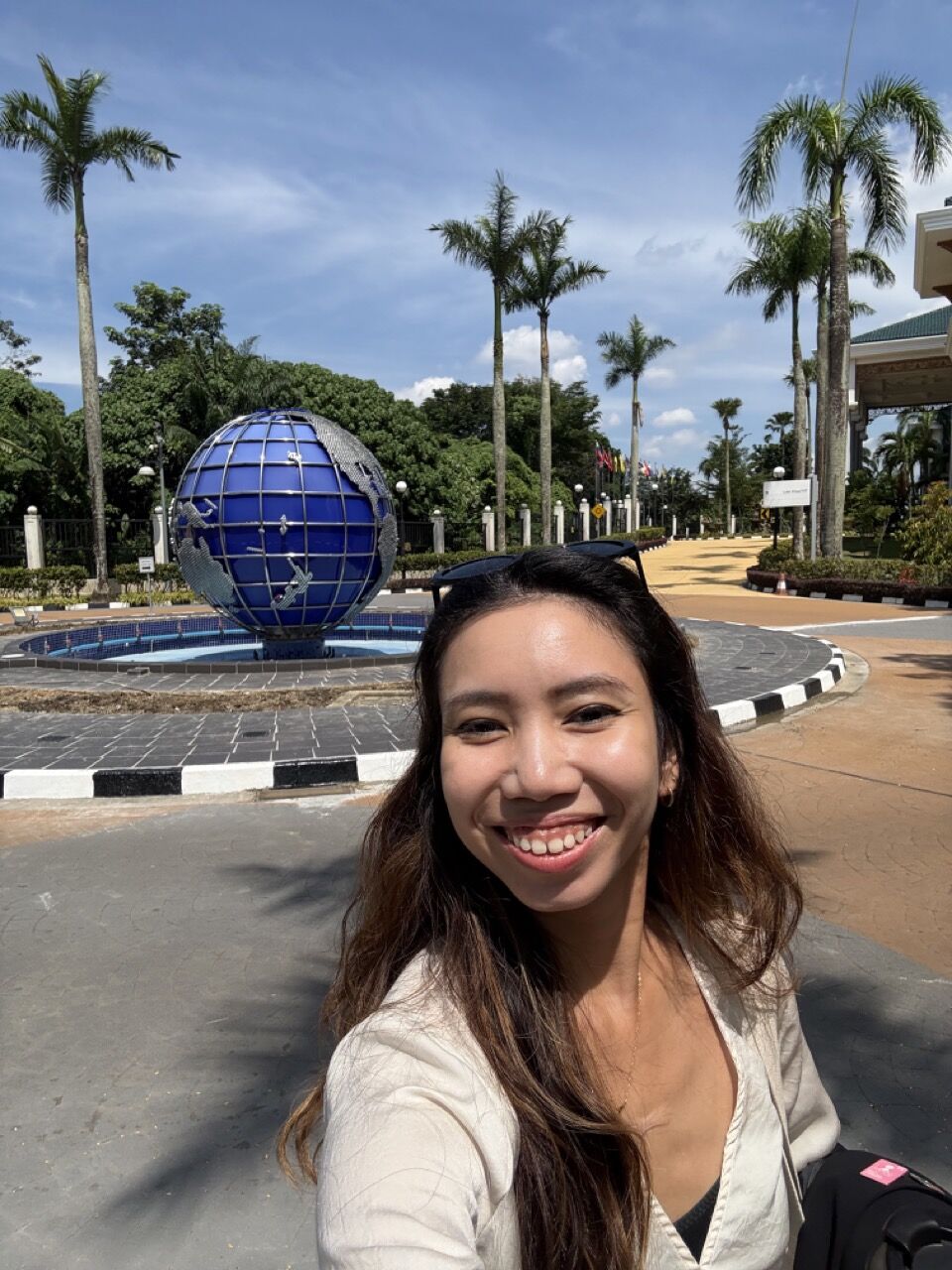
Irisha’s latest post at UNICEF is Climate and Environment Officer. Source: Jasmin Irisha
More than Ivy League status
Strategically, Columbia University is located in the heart of New York — and so was the United Nations headquarters. Irisha knew that being near where the action was happening would help open doors.
And it did. Being a student, Irisha was able to attend a variety of summits as well as learn from Star-studded lecturers from NASA scientists to former UN diplomats. She also took some graduate research assistant positions. She was able to get involved with The Earth Institute as well as Goddard Institute for Space Studies (GISS), which is affiliated with NASA.
Inspiring future climate changemakers
Today, so much funding is going into green industries, as every sector rallies to become more sustainable.
But back when Irisha was completing her environmental science degree, MARA did not fund anyone in this field because they did not see it as a degree that’s worth funding at the time.
MARA, which stands for Majlis Amanah Rakyat, is a Malaysian government agency established to aid, train, and guide Malays and other indigenous people in business, industry, and education.
Similarly, in Columbia, when asked to connect with other Malaysians who completed the course to get some career guidance, university administrators told her there have been no Malaysians enrolled in this course before.
“It’s challenging to navigate when there is no one there who came before you,” she says. “But in turn, it’s an opportunity because you’re the one who gets to carve the way.”
It’s heartwarming for Irisha to hear that every other year, there is at least one Malaysia who applied and was accepted by the same Climate and Society programme she went through.
With that, she is hopeful that this space is growing, and that more Malaysians, from students to administrators. will see the value of higher education, especially in the environmental fields.




